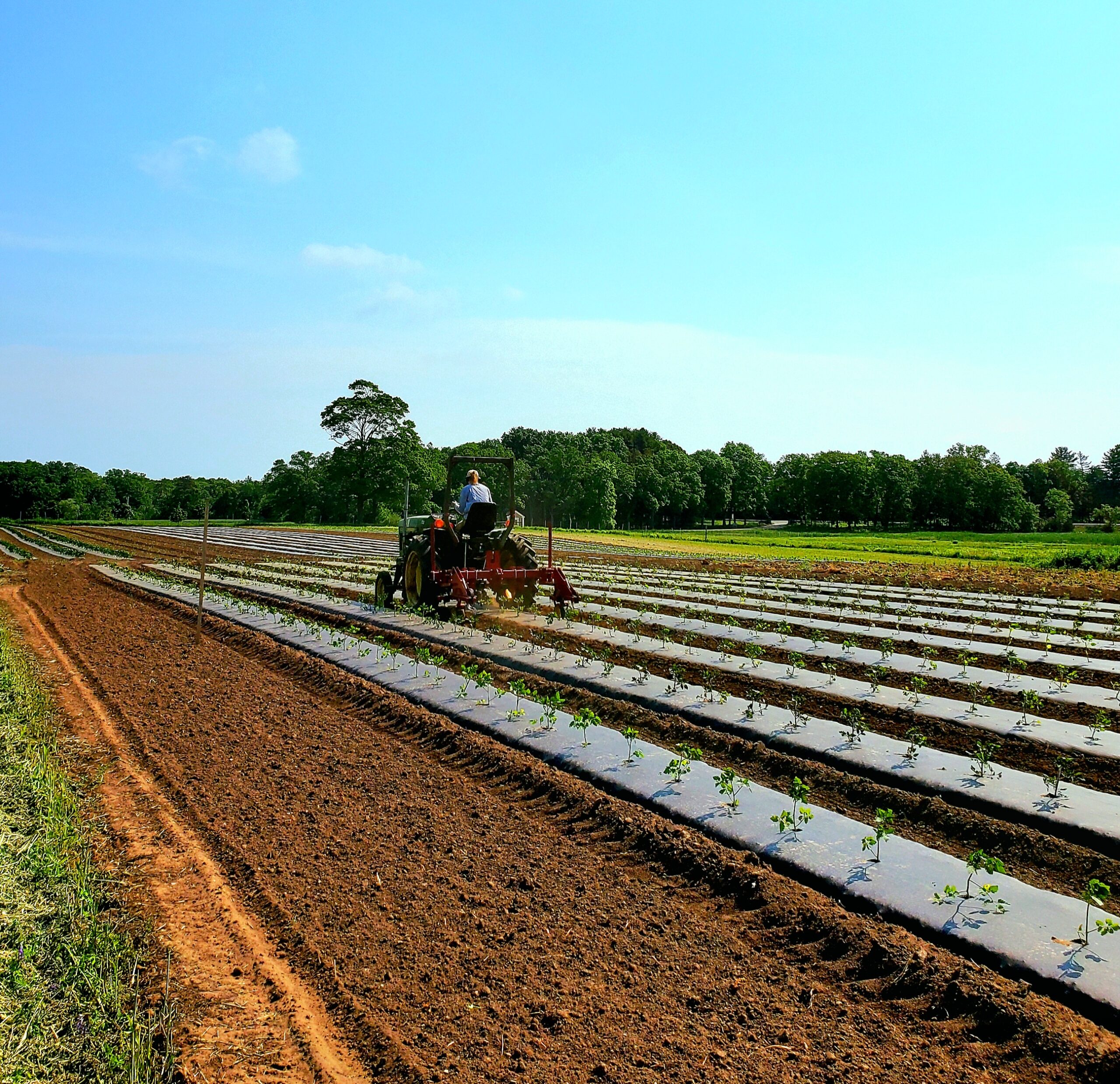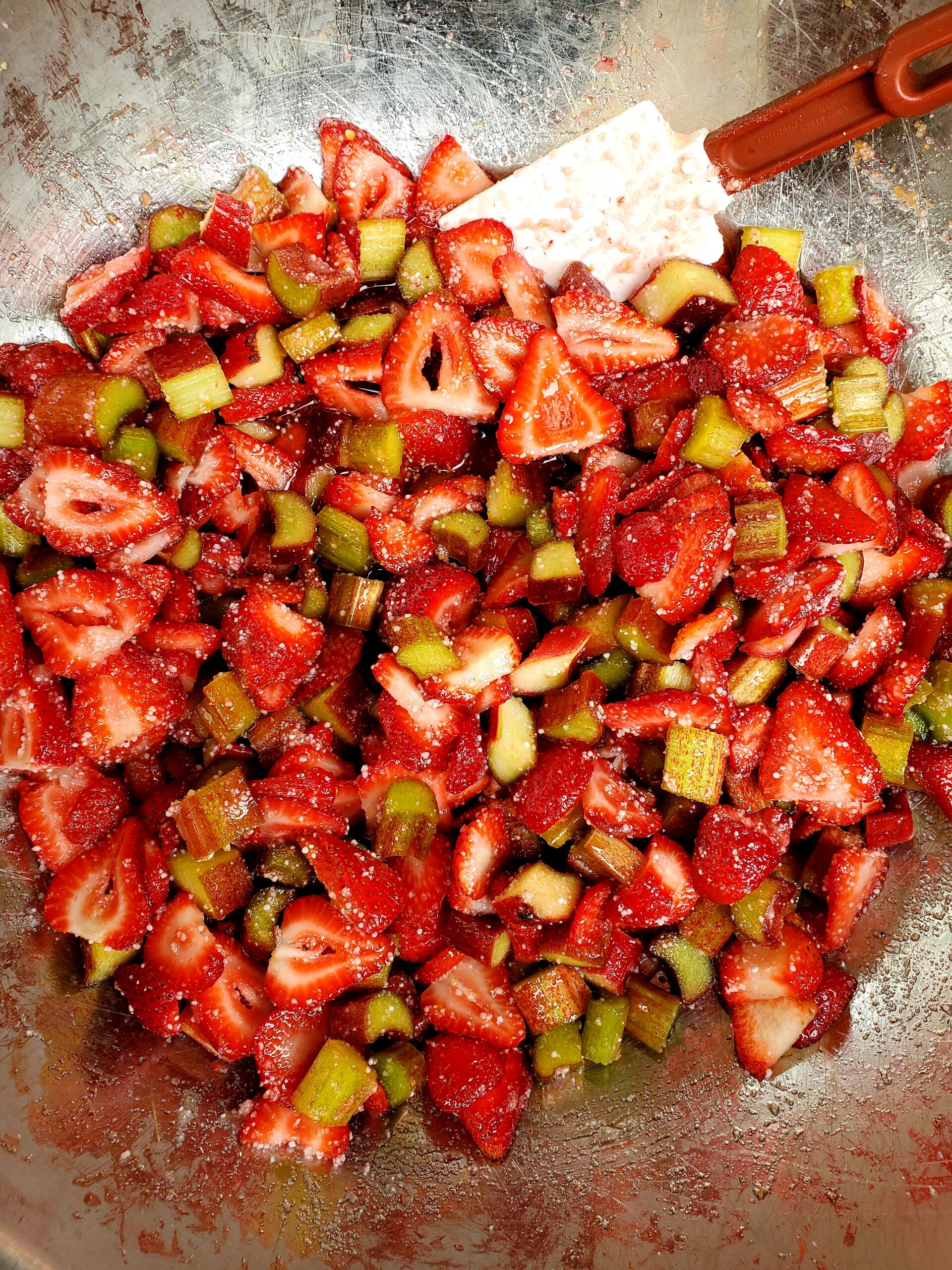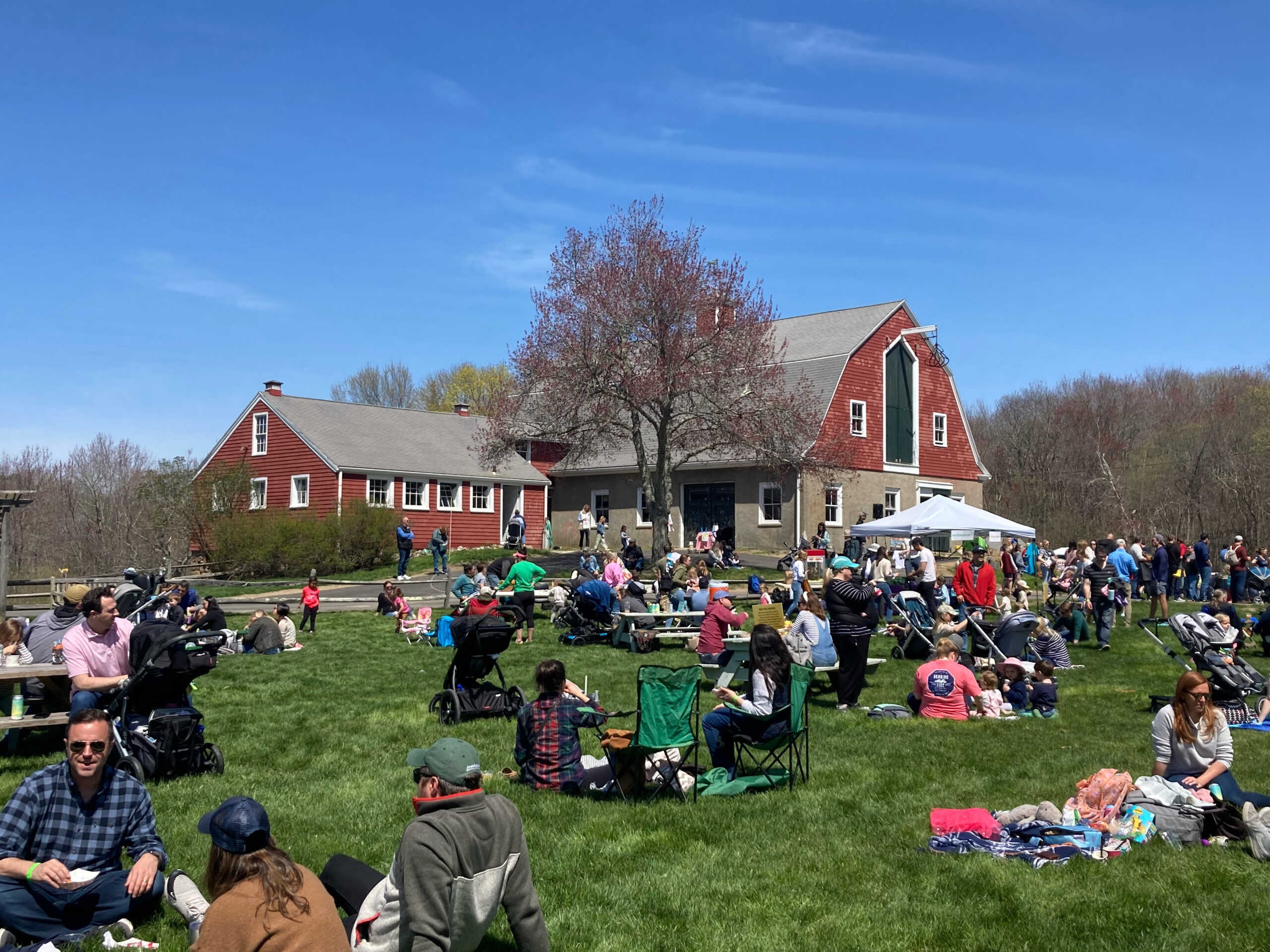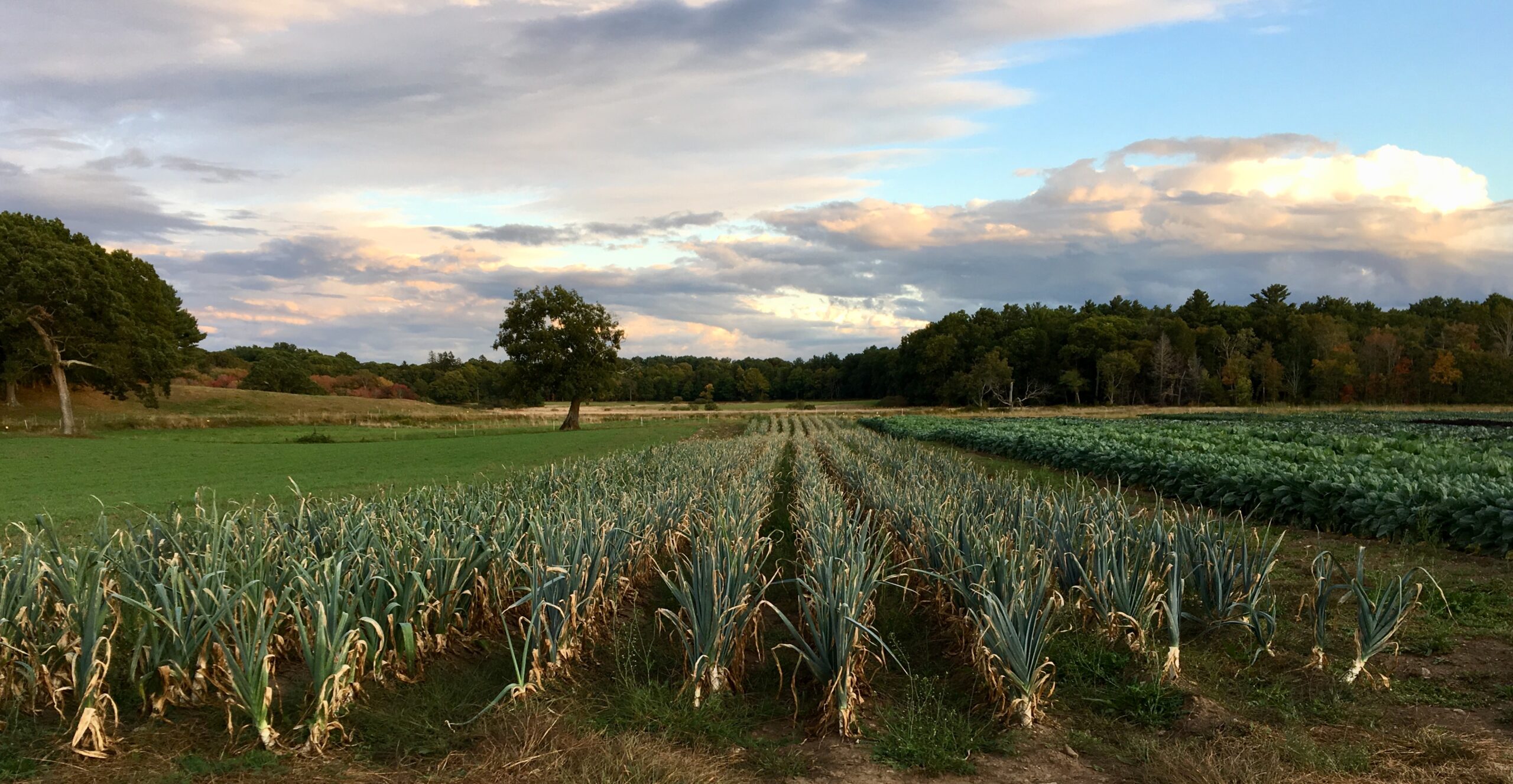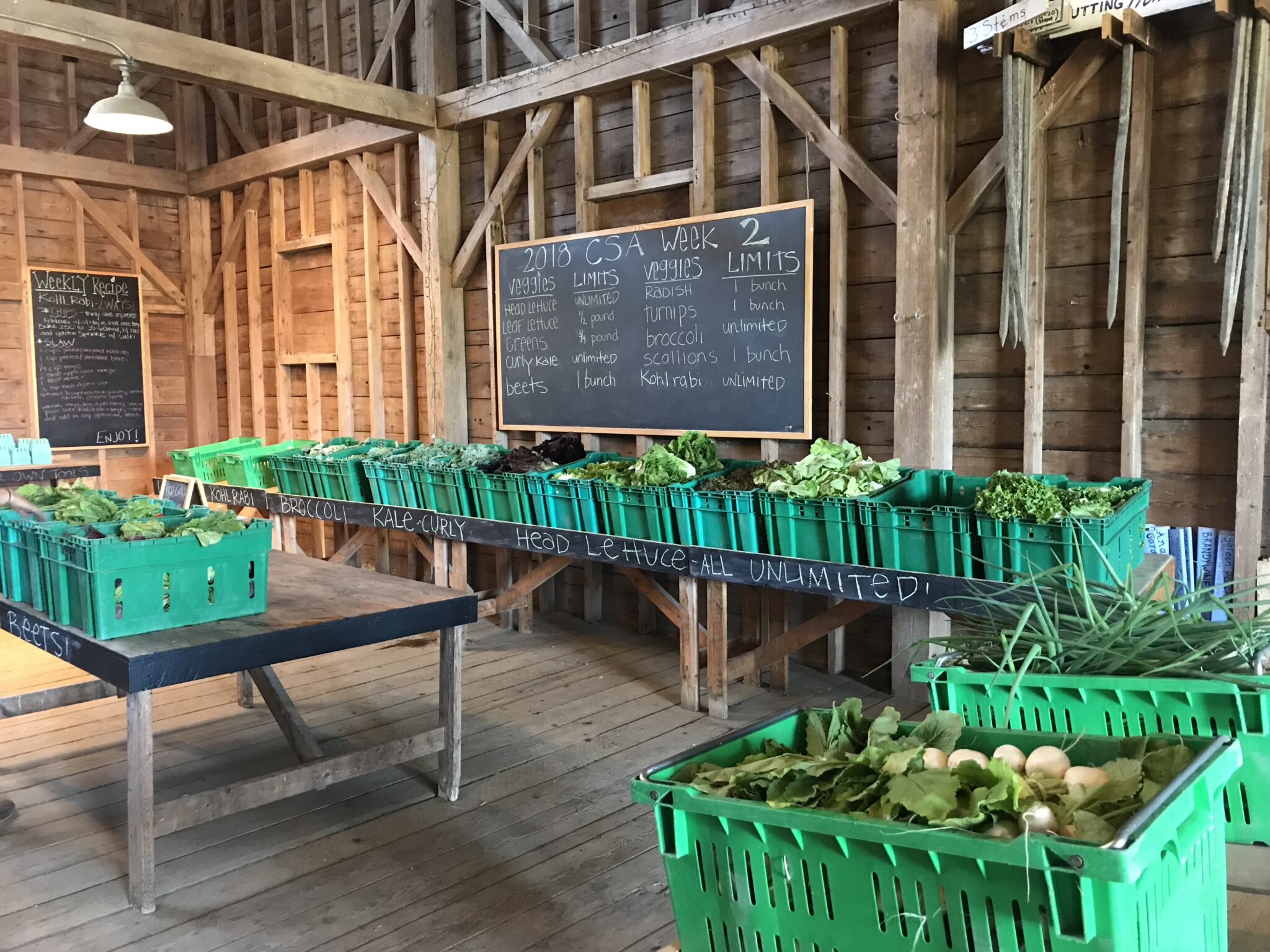

Vegetable and Meat Shares
By becoming a Trustees farm shareholder, you help preserve our farmland, create community, and have access to fresh, local and healthy food.
Become a CSA Shareholder
By becoming a farm shareholder, you help preserve our farmland, create community, and have access to fresh, local, and healthy food! We offer Community Supported Agriculture shares at Appleton Farms in Ipswich, Powisset Farm in Dover, Moose Hill Farm in Sharon, and Weir River Farm in Hingham.
Shop CSAsWhat are the Offerings?
Summer Vegetable Shares: 20 weeks (June-October) and includes a variety of seasonal vegetables, herbs, flowers, and field fruits (strawberries and melons). Shares are market style, meaning that members take what they like and leave what they don’t. A share is abundant for two people who really enjoy seasonal vegetables and very suitable for a family of four. Seasonal Pick-Your-Own crops are also available at some farms.
Current CSA Shareholders can find an archive of the weekly emails here.
Summer Shares begin the week of June 3 and run for 20 weeks.
Winter Vegetable Share: Winter shares at our farms consist of a variety of storage crops, such as winter squash and root vegetables, and fresh greens. Depending on farm location, this share is between 2-4 pickups in the Fall & Winter months.
Check back for dates of winter shares later this year!
Pasture-Based Meat Shares
Fall Winter/Share: Three monthly, 15-pound pickups of Trustees Grown meat for a total of 45 pounds, a mix of 100% grass-fed beef and lamb, pastured pork & chicken. Your share will include a variety of cuts that enable us to follow nose to tail butchering practices. This includes items such as, ground beef and pork, bacon, cuts of steak, roasts or braisers, whole chicken, and specialty cuts of lamb. Each pickup is unique and will include a variety, though not all, of the listed items. Product offerings vary given the seasonality of our farm. All meat is stored frozen and should be kept frozen until ready to eat. Pickup dates and times are emailed to all shareholders.
Check back for dates of winter shares later this year!
Summer Grill Share: One-time, 15-pound Pick-up of Trustees Grown meat, including 100% grass-fed beef and pastured pork. Everything you need to cover all your summer grilling needs! One easy pick-up.
2025 Pickup Dates:
August 7th, 8th & 9th
10AM-4PM
Spring Share: Three monthly, 15-pound pickups of Trustees Grown meat for a total of 45 pounds, a mix of 100% grass-fed beef, pastured pork, lamb and chicken. Your share will include a variety of cuts that enable us to follow nose to tail butchering practices. This includes items such as ground beef and pork, bacon, cuts of steak, roasts or braisers. Limited whole chicken, and specialty cuts of lamb will also be included in the share. Each pickup is unique and will include a variety, though not all, of the listed items. Product offerings vary given the seasonality of our farm. All meat is stored frozen and should be kept frozen until ready to eat.
Don’t see the share you want listed for sale? Please check back seasonally, as we add these shares to our website as they become available. Email appletonfarms@thetrustees.org with any meat CSA or retail questions!
Our Growing Practices
Our growing practices are guided by the National Organic Standards and by our own agroecological approach which focuses on soil health, biodiversity, and resilience. As small, diversified farms, Trustees farms use a variety of production practices that improve the ecosystem and support organic and regenerative farming. Practices seen across our vegetable fields include:
- Crop rotation
- Innovative Cover cropping
- Retaining natural habitats such as hedgerows, buffer strips, and riparian corridors
- Livestock and crop integration
- Maintaining meadows, shrublands, and woodlands adjacent to crop production
- Establishing pollinator strips within cropland
- Building soil structure and organic matter in support of living organisms
- Engaging in conservation tillage techniques
Trustees Grown Meat and Poultry
Trustees Grown meat and poultry are produced at Appleton Farms. Our livestock helps us manage our farmland, sequester carbon, and convert foodstuff indigestible to humans into high-quality protein.
How Do We Raise Our Meat? We raise 100% grass-fed beef and lamb, forested pigs, and chickens on pasture & cover crops. Our beef cows and sheep are moved daily to fresh grass, enabling the pasture to quickly recover, providing more food throughout the season.
The Trustees engages in regenerative production livestock farming and utilize that production activity to authenticate meaningful farm-based experience across our farms. The animals that we raise have a purpose whether that be production for meat, milk, and eggs, as critical elements of farmland resource management, or as accessible educational livestock. Trustees farms are distinguished by humane practices and conscientious attitudes evidenced in our pastures, farmyards, fields, and livestock infrastructure.
Our livestock are provided with an environment that enables them to exhibit their natural instincts. These instincts include but are not limited to bonding with offspring, foraging, flying, rooting, grazing, suckling, nesting, socializing with adequate group sizes, and the ability to flee harm. All livestock are provided the opportunity to forage as appropriate to their species, and forage areas are maintained through rotation. We endeavor to manage closed flocks and herds. Livestock are provided adequate, natural nutrient-rich diets appropriate to species-specific digestive anatomy. All breeds are selected with consideration of their ability to thrive year-round in Massachusetts climate conditions. Management is focused on promoting health over treating disease with the understanding that providing sufficient rearing environments support livestock health and wellbeing.
2025 Weekly Newsletters
Appleton
Week One
Week Two
Week Three
Week Four
Week Five
Week Six
